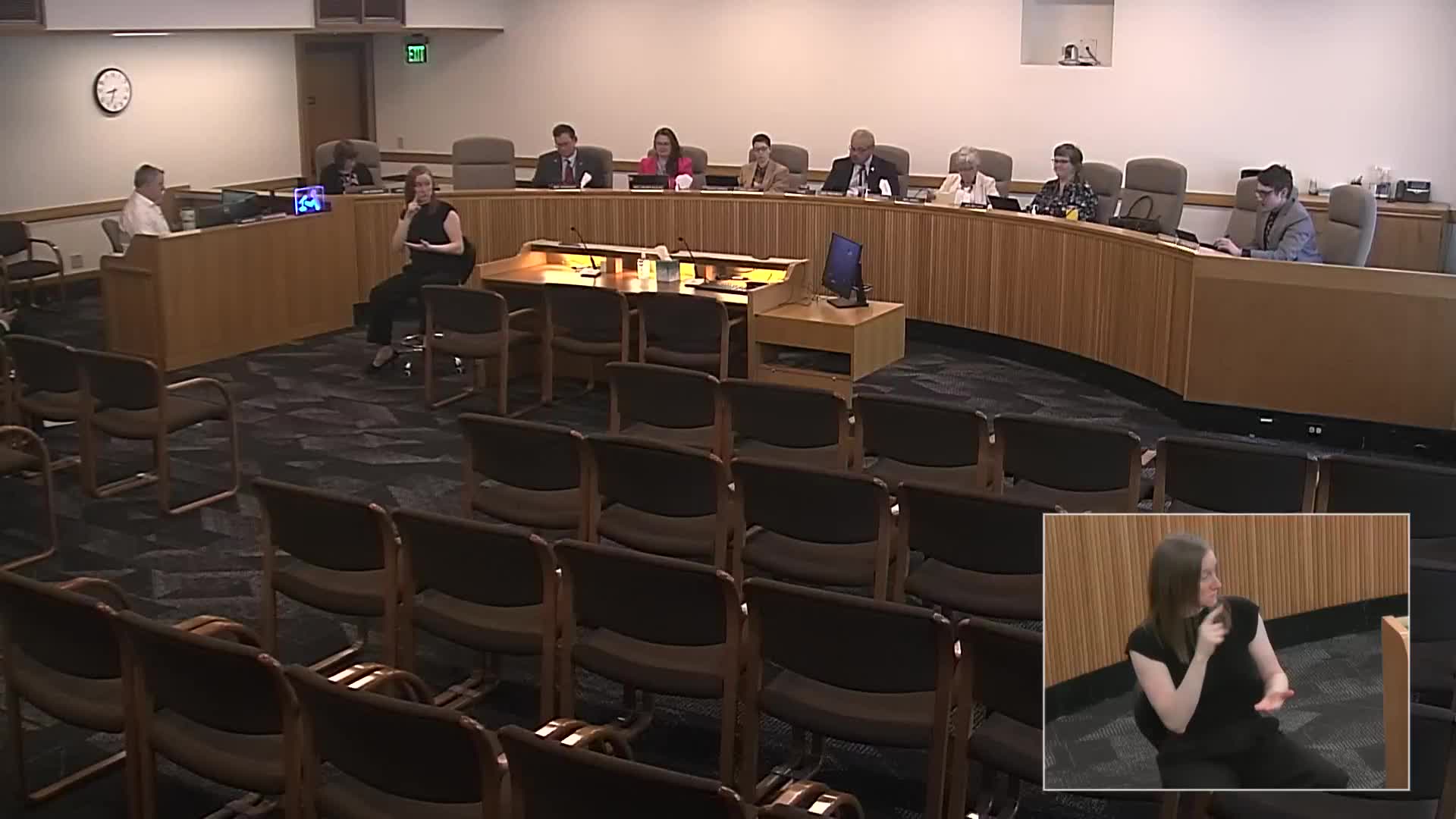Bill package makes technical updates to STEM grants, clarifies recovery‑school and Oregon School for the Deaf rules, aligns emergency procedures
Get AI-powered insights, summaries, and transcripts
Subscribe
Summary
House Bill 3,038 would make technical updates to STEM grant statutes, clarify special‑education responsibility for approved recovery schools (including charters), explicitly add 504‑plan students to Oregon School for the Deaf eligibility language and consolidate school emergency‑procedure statutes.
The Senate Education Committee considered House Bill 3,038, an omnibus measure with multiple technical and policy changes affecting STEM grants, recovery schools, the Oregon School for the Deaf (OSD), and school emergency procedures.
Zoe Larmer, government relations director for the Oregon Department of Education (ODE), told the committee the bill updates outdated STEM statutes to reflect how STEM hubs currently operate, clarifies that approved recovery schools that are also public charter schools are governed by recovery‑school statutes for special‑education responsibility (so ODE “holds FAPE for recovery schools”), clarifies eligibility for the Oregon School for the Deaf to explicitly include students on Section 504 plans, and consolidates disparate emergency‑planning language into a single reference aligned with the standard response protocol.
Committee members raised concerns about the OSD language. Senator Gelser Bloemen asked whether wording that notes a district is “unable to make reasonable accommodations for the child commensurate with the needs of the child as identified in the education plan of the child” could be used to shift students into residential placements or to pressure families to send children away rather than provide local accommodations. Charlotte Jones, principal of the Oregon School for the Deaf (joining virtually), said the intent is inclusivity: “We wanted Oregon School for the Deaf to be considered as that language model, that accessibility for the whole child… and be more inclusive of the 504 student.” Jones said she expected only minimal additional enrollments and did not think the change would let districts “off the hook.”
Senators asked for clearer language. Committee members requested follow‑up with Oregon Department of Human Services/Developmental Disabilities staff about an older statutory provision that appears to require contacting community developmental disabilities programs when certain placement questions arise; Zoe Larmer and ODE staff agreed to follow up.
Kate Pattison, director of school choice options and recovery education, said approved recovery schools operate in varied ways and that ODE is working with partners to maximize available Medicaid billing where appropriate, but that Medicaid billing is often burdensome and not a complete funding solution. Adam Logan, a hard‑of‑hearing OSD alumnus and advocate, testified in support of clarifying that students with 504 plans may choose OSD: “This language is just adding clarity by adding the words deaf, hard of hearing, deaf blind may go. So I can sense…uneasiness with this and I understand that. … This is just making sure that there's no sag. Like, person with developmental disability… it's not blocking them from going to OSD if that is the best place for them.”
Committee members asked ODE to refine statutory language to make clear student enrollment at OSD is voluntary and to remove or revisit older cross‑references to developmental‑disability placement processes. The committee closed the public hearing on HB 3,038; no committee vote appears in the hearing record.
